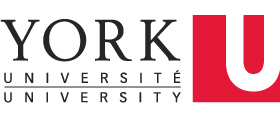

About the Intellectual Migration Project
Intellectual Migration, or IM in short, is an internationally-based, comparative project that aims to understand the dynamics underlying global knowledge and human capital flows. Underlying our conceptualization of IM is that higher-education students and highly-skilled professionals engage migration as a means to acquire, upgrade and/or utilize intellectual capital for the purpose of career advancement or upward social mobility. Such migration occurs along a spectrum where migration stages intersect with life transitions. Migrants include those who leave home for higher education or academic exchange elsewhere, stay in the destination region/country on completion of higher education there, return to the home region/country, or move to a third region/country to utilize their credentials obtained in their mobility courses. Their decision to move, stay or return at any time is determined by an array of individual, institutional and structural factors underlying migrant mobility.
Currently, the project studies intellectual migrants from mainland China to Canada and the United States as well as the flow back to China of western-trained mainland Chinese. Four types of migrants are considered. They include:
1. Domestic university students in China.
2. China-born students in Canada and the U.S.
3. China-born academics teaching in Canadian and US universities.
4. Overseas-trained academics and professionals of China origin who are now working in China.
Our goals
Our general objectives are to explore in each intellectual migrant group:
1. Who they are?
2. Why they migrate?
3. Where they migrate to?
More specifically, we aim to assess:
1. How do individual characteristics, gender roles, family consideration, career aspiration, job market conditions, and country-specific migrant attraction, retention, and/or recruitment policies affect migration decisions?
2. How important are intellectual nodes and intellectual gateways in attracting/retaining intellectual migrants?
3. What policies destination regions/countries can pursue to enhance their competitiveness in the global race for talent?
Some terms
Intellectual capital (IC): a multi-dimensional concept that combines human capital with social, cultural, symbolic capitals.
Intellectual node (IN): an academic or research institution, or a major employer of skilled workers.
Intellectual gateway (IG): a region with a larger number of high-quality intellectual nodes.
Intellectual periphery (IP): a region with few intellectual nodes.
